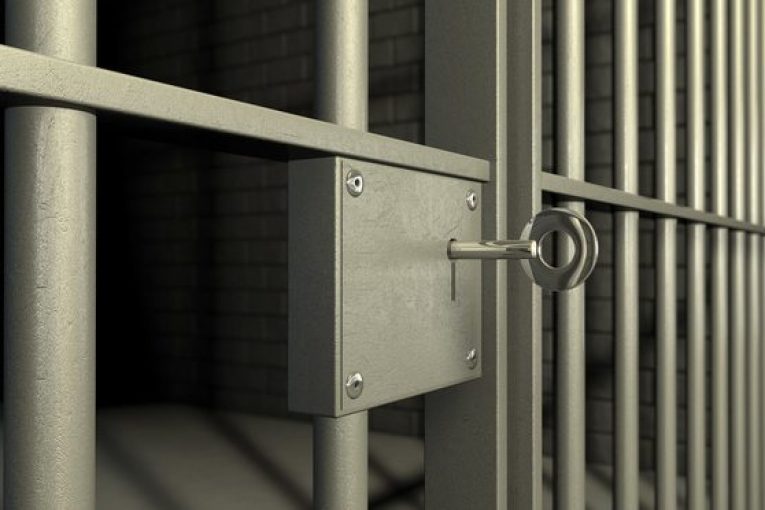

(The following is a letter from a group of criminal justice reform groups seeking the President to Commute Federal sentences for vulnerable federal prison populations – signers at the end).
On behalf of the undersigned organizations, we urge you to utilize your clemency power to commute the federal sentences of people eligible for compassionate release, and other populations that are exceptionally vulnerable to coronavirus.
As the United States continues to combat the global health pandemic rapidly spreading throughout the country, it is critical that we not forget the millions of people working and detained in jails, prisons and detention centers. Some Federal Bureau of Prisons staffers in New Hampshire, Texas, and Wisconsin and an Immigration and Customs Enforcement medical staff member at the Elizabeth Detention Center in New Jersey have all tested positive for COVID-19.
On Saturday, a person jailed at the Metropolitan Detention Center in New York City tested positive for COVID-19, which marks the first confirmed case of an incarcerated individual in the federal prison system. On Sunday, two people incarcerated at the Federal Corrections Complex in Oakdale, Louisiana tested positive for COVID-19.
These initial reports of COVID-19 at our nation’s jails and prisons are not surprising given the inability to adhere to Center for Disease Control (CDC) best practices in these facilities.
According to the CDC, proper hygiene practices and social distancing are the most effective tools to combat the spread of COVID-19. The CDC is advising law enforcement to “maintain a distance of at least six feet” and “ensure only trained personnel wearing appropriate personal protective equipment (PPE) have contact with individuals who have or may have COVID-19.”
Disturbingly, federal prison employees in Florida have reported shortages of essential protective gear including masks, soap, hand sanitizer and gloves, with existing supplies not likely to last them through the week.
The public health concerns presented by coronavirus in confined spaces creates an urgent need to ensure the health of staff and those incarcerated, particularly those who are elderly and those with chronic health conditions. Public health experts and groups such as Dr. Gregg Gonsalves, doctors working in New York City Hospitals , Dr. Marc Stern , Dr. Oluwadamilola T. Oladeru and Adam Beckman , Dr. Anne Spaulding , Homer Venters , and Josiah Rich have all clearly stated that preventing the harm inflicted by SARS-CoV-2 and COVID-19 can become immensely more difficult for people involved in the criminal legal system.
In response, some public health experts, including John Hopkins public health experts Brendan Saloner and Sachini Bandara, have advised government officials to “[r]elease — and better still don’t incarcerate — people who pose no threat. Several localities have heeded that advice.
Therefore, we call upon you to commute the federal sentences of individuals who could benefit
from compassionate release, including those who:
- Are older and elderly;
- Have a terminal medical condition;
- Have a debilitated medical condition;
- Suffer from a chronic medical condition; or
- Have suffered a death of a family member who is a primary caregiver to a child of the person incarcerated.
In addition to commuting the federal sentences of individuals who could benefit from compassionate release, we call upon you to use your clemency power to release those incarcerated at the federal level who are elderly and/or particularly vulnerable to serious illness or death from COVID-19 due to underlying health conditions as identified by the Centers for Disease Control and Prevention, including:
- Blood disorders;
- Chronic kidney disease;
- Chronic liver disease;
- Compromised immune system (immunosuppression);
- Current or recent pregnancy;
- Endocrine disorders;
- Metabolic disorders;
- Heart disease;
- Lung disease;
- Neurological and neurologic and neurodevelopment conditions; and
As we work to combat the spread of the coronavirus pandemic, it is essential that we not forget
about the millions of Americans currently incarcerated and working in jails, prisons and
detention centers, and that we take action to protect those who are the most vulnerable to COVID-19. Again, we ask you to commute the sentences for those populations at the federal level most vulnerable to coronavirus.
Thank you in advance for your consideration.
Signed:
American Civil Liberties Union
Due Process Institute
FreedomWorks
Justice Action Network
Justice Roundtable
The Leadership Conference on Civil and Human Rights
R Street
The Sentencing Project
We Got Us Now
To sign up for our new newsletter – Everyday Injustice – https://tinyurl.com/yyultcf9
